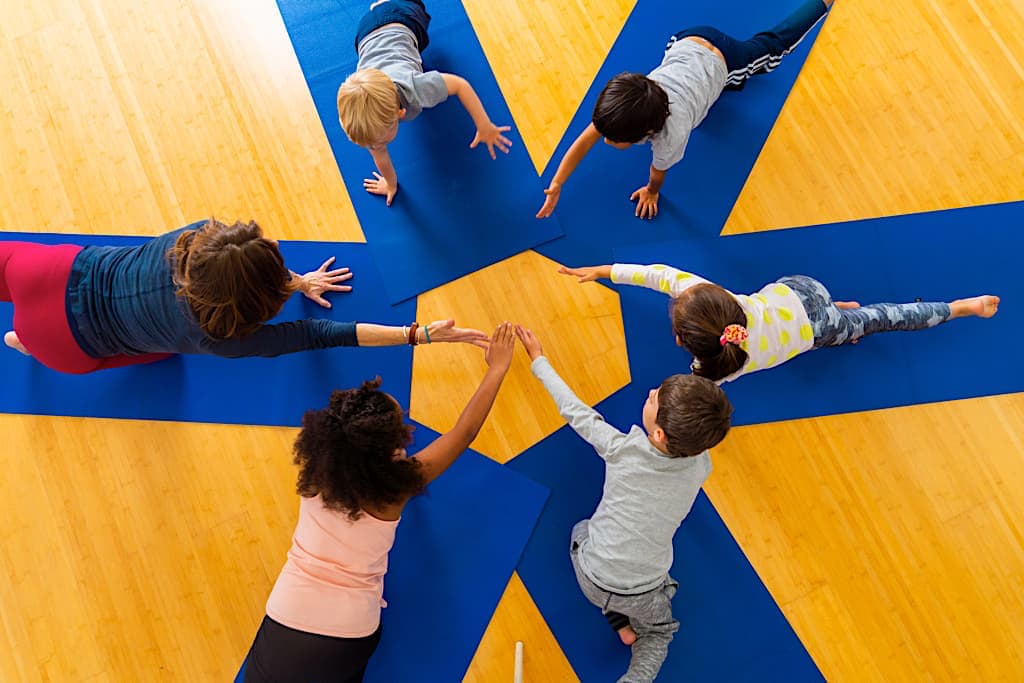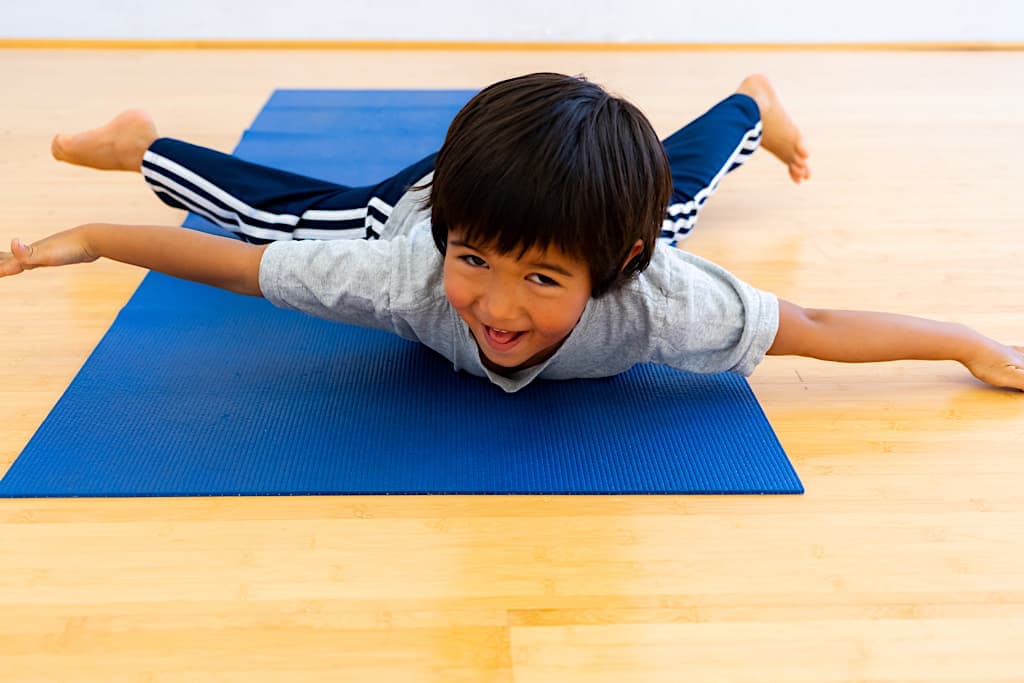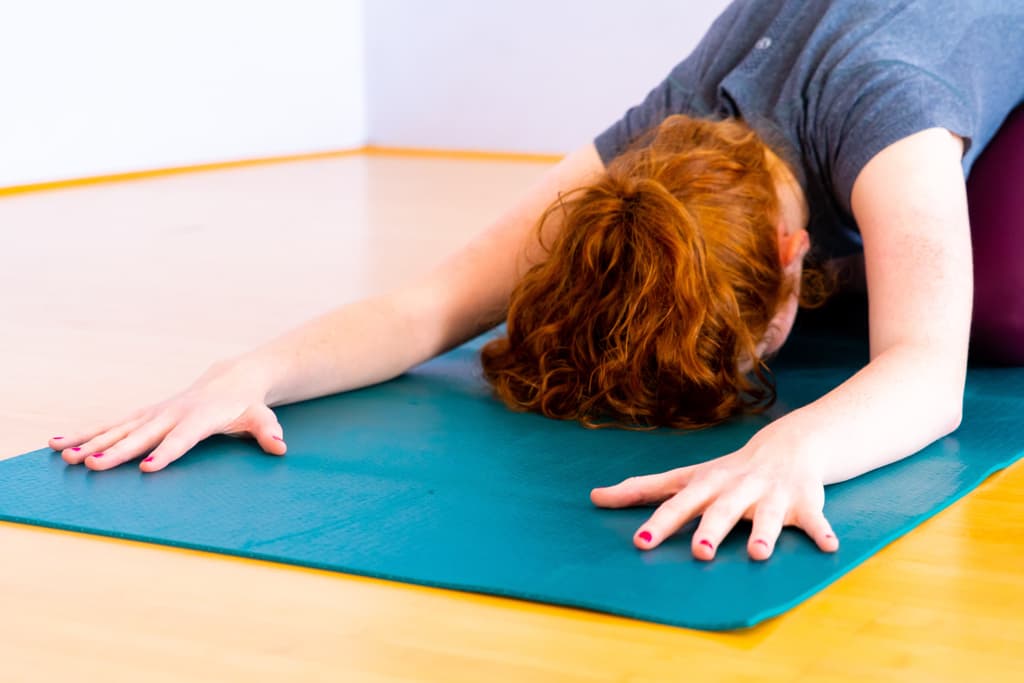
Yoga for preschoolers, ages three to six years old, helps maintain the flexibility they were born with and build the strength they need to hold their bodies up for optimal learning. This focus helps prepare them for school and how to navigate respectful relationships with friends and teachers in the absence of their parents.
In yoga, preschool children are very engaged and collaborative. They contribute to the class with their creativity. It’s fun to incorporate their ideas and to experience the contrast between loud and quiet, and big and small, which helps them learn self-regulation skills.
You can create a foundation of health and success when you start yoga early in life. These skills can take a child to new heights in kindergarten, elementary school and into the teenage years.

Yesterday, I received this message from a newly trained It’s Yoga Kids® Certified graduate, Lisa L.:
“All is going fantastic just extremely busy…I have been utilizing the It's Yoga Kids® model since returning from training daily and I am getting such a phenomenal response from parents, kids and administrators I am working with. I even had the superintendent hear of what I was doing with the kids and came to sit in one of my group sessions. It has been fantastic!
Parents are coming to me asking me what I am doing with their kids as it is having such an impact. Same with teachers. Now, all my teachers are coming to me asking me to do sessions with their classes. It is so great!!! I have been doing groups starting with IYK movement, adding a socio-emotional lesson and then ending with a rest meditation. It has been having such a positive effect on our school climate. I tell you, Michelle, you have an amazing program! Can't wait to collaborate further!”
Messages like these warm my heart. It helps us reach our goal to ensure that these proven practices for wellness, reach every kid, in every classroom, in every school!
Thank you Lisa, for being a leader for our cause.

A recent study by the Partnership for a Drug-Free America showed that 73 percent of teens report the number-one reason for using drugs is to deal with the pressures and stress of school. Surprisingly, only 7 percent of parents believe that teens might use drugs to cope with stress, showing parents severely underestimate the impact of stress on their teens’ decision to use drugs.
Teens are their own beings. And it’s tough being a teenager today! Demands with parents, friends, school, sports and performing arts, and the impact of social media are more intense than ever on the adolescent body, brain, and heart. The teenage brain experiences everything in extremes, and it’s normal. How can we help our teens shift from catastrophic to coping?
1. Relax the Body: Tension is held in the body and builds over time. Activity dramatically decreases for teens starting in middle school as many kids move away from competitive sports. Even teens who maintain active in sports need ways to release tension from everyday stress and few have these habits outside of organized activities.
Simple as it seems, it’s challenging to practice The 1-2-3 to Calm in a moment of stress.
- Breathe in
- Breathe out
- Repeat until the body softens – notice any sensations in the body.
2. Think and Find Evidence: Once the body is calm, begin to think about why you are upset. Acknowledge fear; Name It to Tame It. Say it out loud. I’m afraid of…. Then look for evidence from your past to validate or invalidate the fear. What will happen if…I fail?
3. Do Your Best: How can you really know if what you fear will be true? We do not know what the future holds. We can only control the now. Be present.
- Make a plan - chunk out the big scary thing into smaller pieces
- Schedule it and manage it
- Track your progress
- Make adjustments
Yoga teaches teens to be in their bodies, to focus on the present moment and to trust themselves. Connecting body, mind, and heart, teens can tap into their inner wisdom and guide them to make better choices in every part of life so they can cope with the many demands placed upon them.
What are Niyamas?
In addition to movement and meditations, Yoga includes lessons “off the mat.” Traditionally, the Yoga virtues are divided into two categories, Yamas (how you relate to the world) and Niyamas (how you relate to yourself). These ideas have been modified and translated into “kid-friendly” terms.
Niyama has to do with self-discipline and spiritual observances. Regularly attending temple or church services, saying grace before meals, developing your own personal meditation practices, or making a habit of taking nature walks are all examples of niyamas in practice. The five kid-friendly niyamas are:
- Discipline to care for self/Self-Esteem
- Moderation/Patience/Gratitude
- Self-Love/Faith/Compassion
- Concentration/Self-Study/Observation
- Connect to True Self/Inner Wisdom
